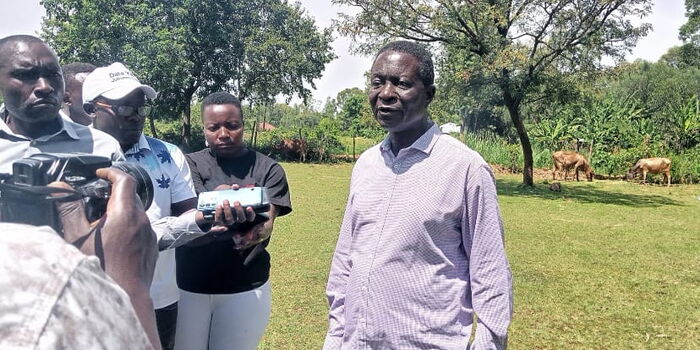Controversy over Adesina's Claims on Nigeria's Economic Status

The Nigerian government has strongly refuted claims made by the outgoing African Development Bank (AfDB) President Akinwumi Adesina, who stated that Nigerians are economically worse off today than they were in 1960, the year of the country's independence. President Bola Tinubu’s special adviser on information and strategy, Bayo Onanuga, has dismissed Adesina’s statements, asserting that his economic data is both inaccurate and incomplete.
Onanuga issued a statement via social media, directly addressing Adesina’s assertions about Nigeria's GDP per capita. He argued that Adesina's figures do not align with verified economic data and criticized him for speaking “like a politician, in the mould of Peter Obi,” suggesting a lack of due diligence in his analysis.
According to Onanuga, Adesina claimed Nigeria’s GDP per capita was $1,847 in 1960 and $824 today. Onanuga countered, stating that in 1960, Nigeria’s GDP was $4.2 billion, with a per capita income of $93 for a population of 44.9 million. He emphasized that significant economic growth did not occur until the 1970s due to increased crude oil earnings.
Onanuga provided detailed GDP figures, noting that in 1970, Nigeria’s GDP rose to $12.55 billion, reaching $27.7 billion in 1975, $64.2 billion in 1980, and $164 billion in 1981. He highlighted that per capita income remained below $880 until 1980, peaking at $2,187 in 1981 and then declining to $1,844 in 1982. After rebasing in 2014, it reached an all-time high of $3,200. Onanuga questioned the source of Adesina’s figures, implying they are unreliable.
Onanuga argued that GDP per capita is not the sole determinant of living standards. He stated that it fails to account for wealth distribution, income inequality, and the informal economy. Additionally, it does not consider subsistence farming or income transfers within families. He said that Nigeria today has more primary, secondary, and tertiary schools, better road networks, and more medical facilities compared to 1960.
Onanuga also highlighted the advancements in telecommunications. He noted that at independence, Nigeria had only 18,724 operational phone lines for approximately 45 million people. Today, over 200 million Nigerians have access to mobile phones and digital services, indicating significant progress.
Onanuga referenced Vodacom’s experience in the late 1990s, where consultants advised against entering the Nigerian market due to perceived poverty based on GDP metrics. However, MTN and other companies demonstrated that GDP alone does not reflect economic potential. MTN has been profitable for over two decades, with recent results showing substantial revenue and subscription growth. Onanuga questioned whether this aligns with Adesina’s claim that Nigeria is worse off than in 1960.
Onanuga acknowledged that the Nigerian Bureau of Statistics (NBS) is working to recalibrate the GDP to include the informal economy, which some experts believe is larger than the formal economy. He reiterated that any objective assessment would conclude that Nigeria has made progress since 1960, with the GDP now being significantly higher than at independence.








